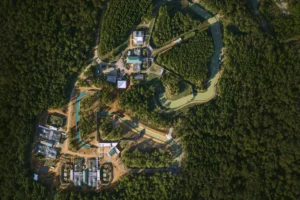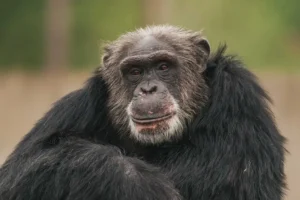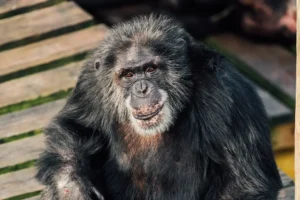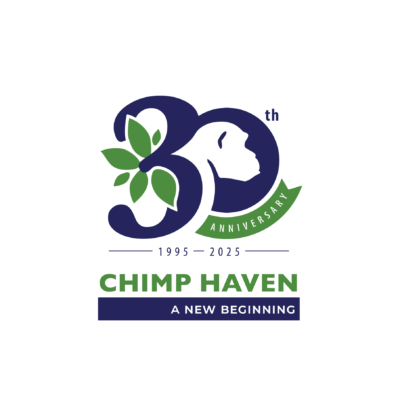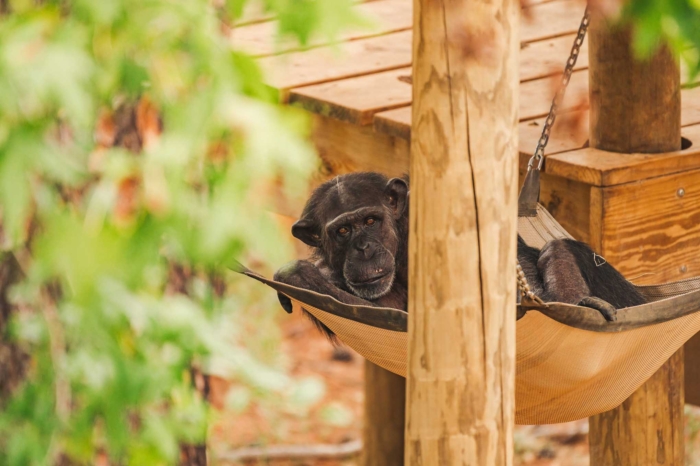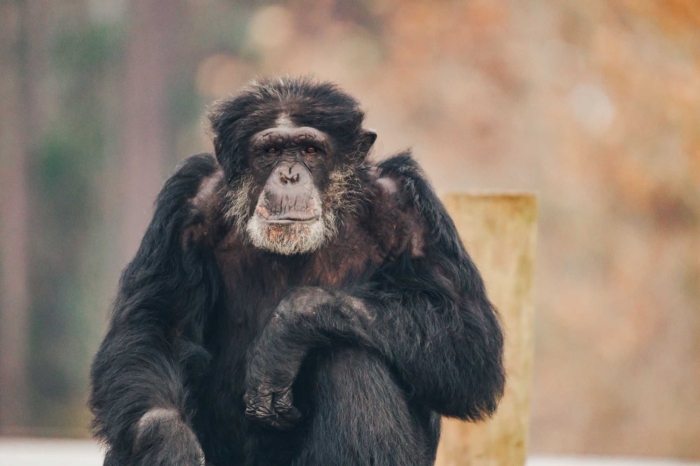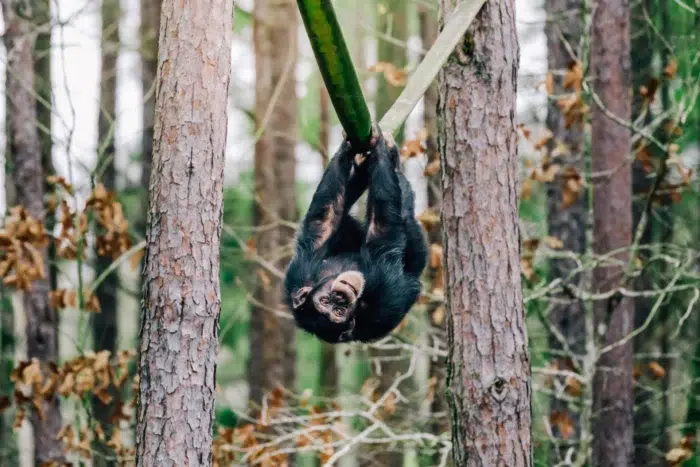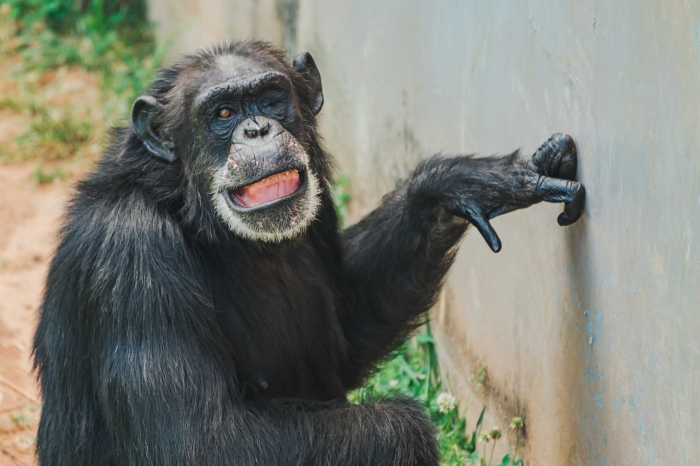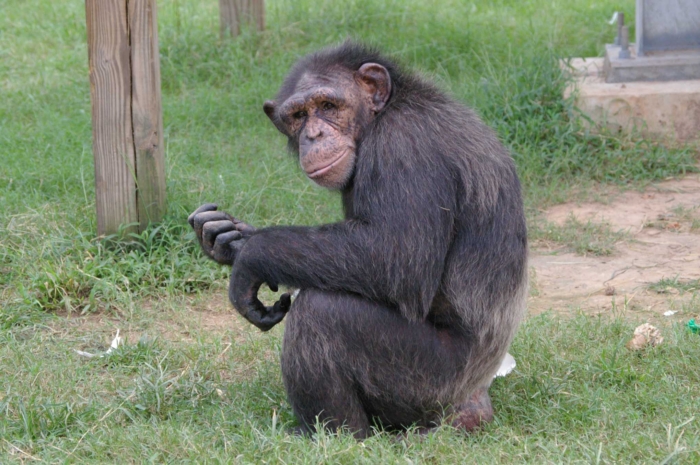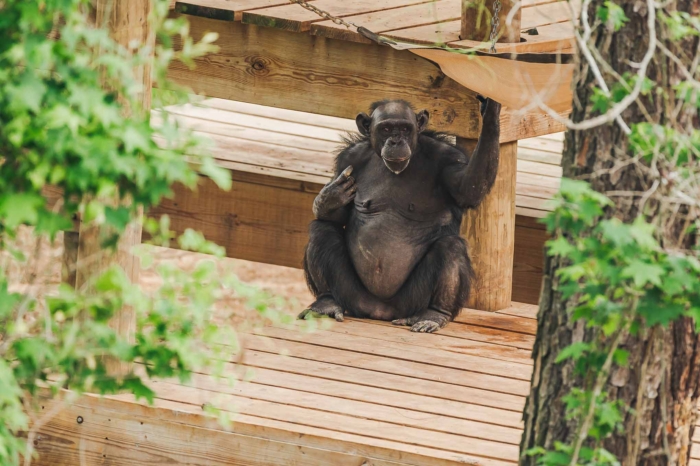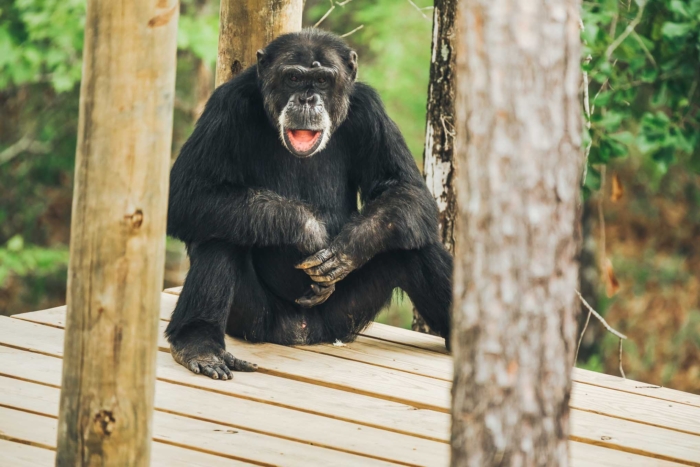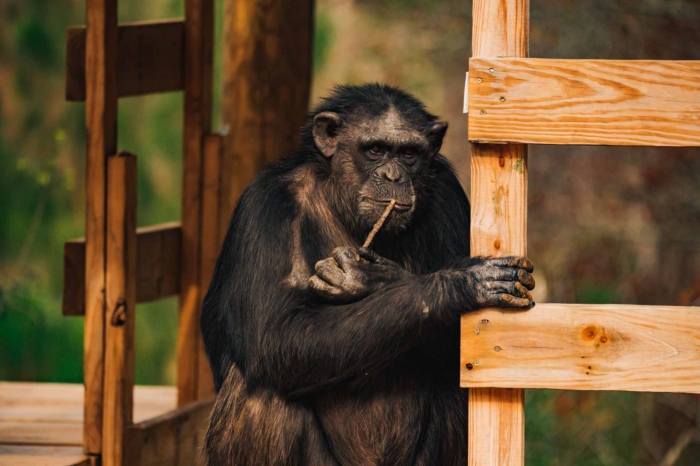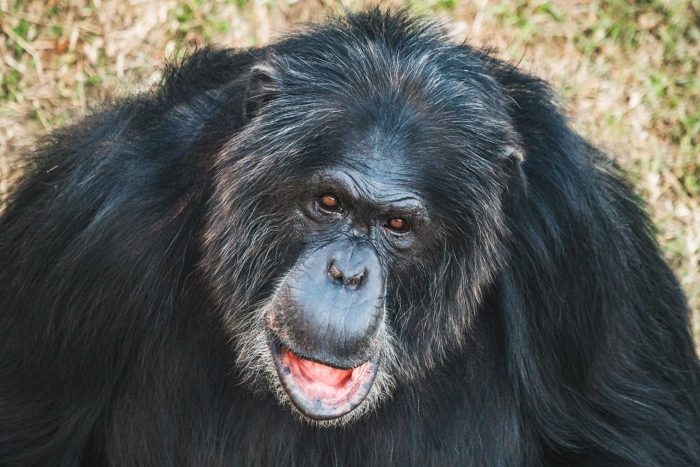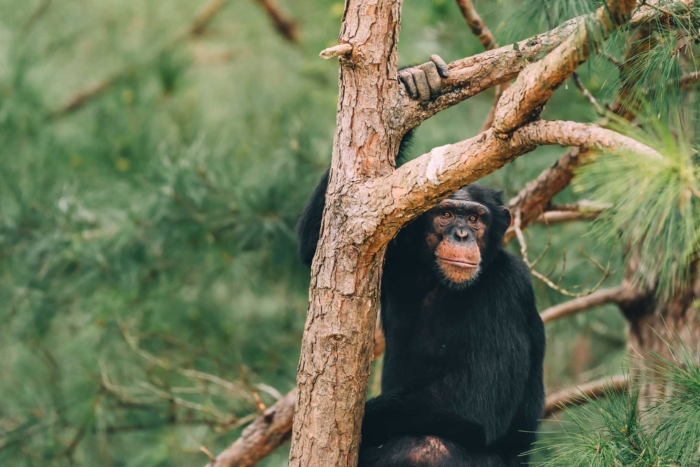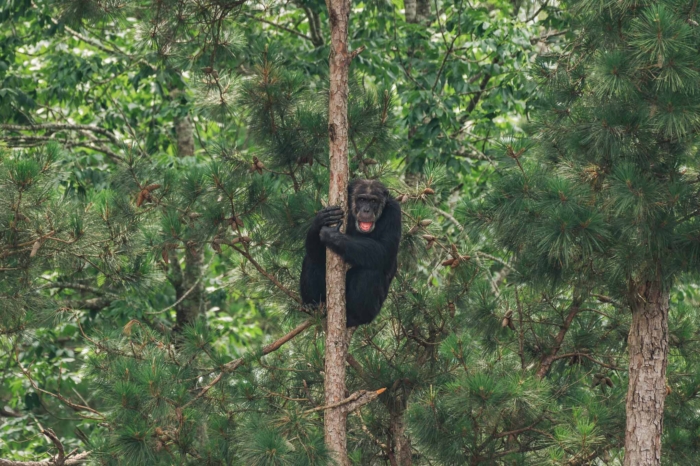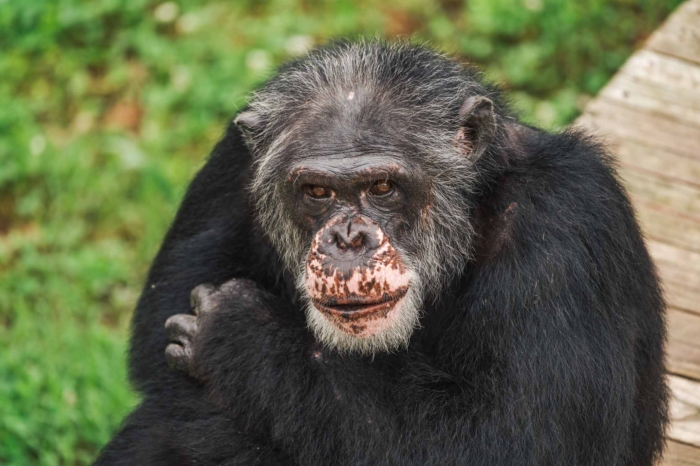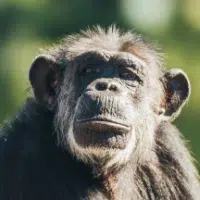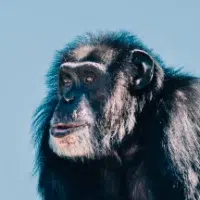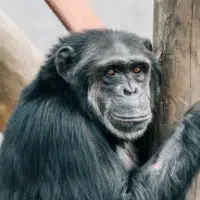Meet the Chimps
With nearly 300 chimps, there’s never a dull moment at Chimp Haven! Meet a few of the unique characters and personalities who call the sanctuary home.
-
All Personalities
-
Don't Talk to Me Before My Second Banana
-
Drama Queen
-
Foodie
-
Golden Girl
-
Her Majesty
-
Ladies' Man
-
Loyal Friend
-
Lunch Thief
-
Mischief Maker
-
Nap Enthusiast
-
Nosy Neighbor
-
Notorious Poo Thrower
-
Perfect Gentleman
-
Pot Stirrer
-
Smarty-Pants
-
Super Mom
-
Sweetie Pie
-
Tough Guy
-
Voice of Reason
-
All Ages
-
5 – 8 Juvenile
-
9 – 11 Pre-Teens
-
12 – 19 Teens
-
20 – 35 Adult
-
35+ Golden Years


FREQUENTLY ASKED QUESTIONS
Chimp Haven is a private, nonprofit sanctuary, the world’s largest chimpanzee sanctuary, and the national chimpanzee sanctuary for all federally owned chimpanzees retired, primarily, from biomedical research facilities. The sanctuary is a refuge of 200 acres near Shreveport, Louisiana, and currently home to nearly 300 chimpanzees.
Chimpanzees are a lot like us. They are mankind’s closest biological relative, and were once considered a good medical model for research on illnesses and diseases that affect people. When the HIV/AIDS epidemic hit the U.S. in the 1980s, the federal government established breeding centers for chimps across the country and hundreds of chimpanzees were used to try to find a cure. However, in the mid-1990s, scientists discovered chimps were no longer a good model for HIV/AIDS research, which left hundreds of “surplus” chimpanzees in research facilities. Following decades of efforts by animal protection groups, captive chimpanzees were classified as endangered in 2015. The National Institutes of Health responded with the landmark decision to retire all NIH-owned chimpanzees living in research facilities around the country to sanctuary.
Chimp Haven has transported, received, and successfully introduced more than 500 chimpanzees, an extraordinary accomplishment given the complex logistics of chimpanzee introduction and sophisticated social dynamics within chimpanzee communities.
No; all the chimpanzees are permanently retired and will live out the rest of their lives at Chimp Haven. In 2007, Congress passed the Chimp Haven Is Home Act, which prohibits their return to research.
The chimpanzees are retired from medical research and no invasive studies are ever conducted at Chimp Haven. The primary goal at Chimp Haven is to ensure each chimpanzee is experiencing the best quality of life and has an enriching retirement at the sanctuary. Our staff conduct behavioral observations of the chimpanzees to monitor their wellbeing and ensure successful social integration. More than 400 chimpanzees have been integrated into social groups at the sanctuary using these methods based on scientific principles and processes.
Chimp Haven is home to chimpanzees with a wide variety of individual health needs and age ranges, many of which arrive at the sanctuary with pre-existing conditions that require long-term care. More than 50 percent of the Chimp Haven colony receive medications to manage conditions such as arthritis and heart, kidney, and liver diseases. Chimp Haven’s veterinary staff provides expert medical care to ensure the chimpanzees feel happy, healthy, and comfortable in their retirement years.
Chimp Haven works diligently to prevent chimpanzee pregnancies because our objective is to be a place of retirement for chimpanzees who are currently living in research facilities. Any space that is taken by a new birth replaces the space and resources that could be provided to a chimpanzee awaiting retirement.
Chimp Haven is a private, nonprofit organization that depends significantly on the generosity of individuals to help cover the cost of chimpanzee care. Chimp Haven receives government funding to support 75 percent of the care of federally owned chimpanzees, and must raise the remaining 25 percent of funds for the chimpanzees’ care through private support.
Chimp Haven relies on the generosity of private funders to provide the chimps with everything they need in retirement. The cost of the high level of care Chimp Haven is known for has risen to $25,000 per chimp per year, up from $17,000 two years ago. This includes their food, medical care, enrichment, and all of the basic necessities for these extraordinary individuals.
Additionally, Chimp Haven does not receive any government funding to improve, expand, or add more chimpanzee habitats or veterinary suites to provide care for additional chimpanzees. Without the generous support from individuals, corporations, foundations, and organizations, Chimp Haven could not provide the chimpanzees with the retirement they deserve.
It costs about $25,000 per chimpanzee annually to provide care at sanctuary. This includes their food, medical care, enrichment and all of the basic necessities for these extraordinary individuals.
Sanctuary provides chimpanzees with the opportunity to experience life in a natural environment, free from experiences of the past. Choice is a key ingredient of sanctuary life, with ample space for the chimps to play, climb, and explore in an environment similar to what they would experience in the wild. Chimp Haven is specifically designed to offer long-term, personalized care to the aging chimpanzee population for the remainder of their lives, ensuring all retirees have access to things that make them happy and healthy such as good food, behavioral enrichment, nesting materials, and friends. We believe sanctuary is the optimal place for chimpanzees retired from biomedical research, and we’re on a mission to bring them home for the peaceful, enriching life they deserve.

